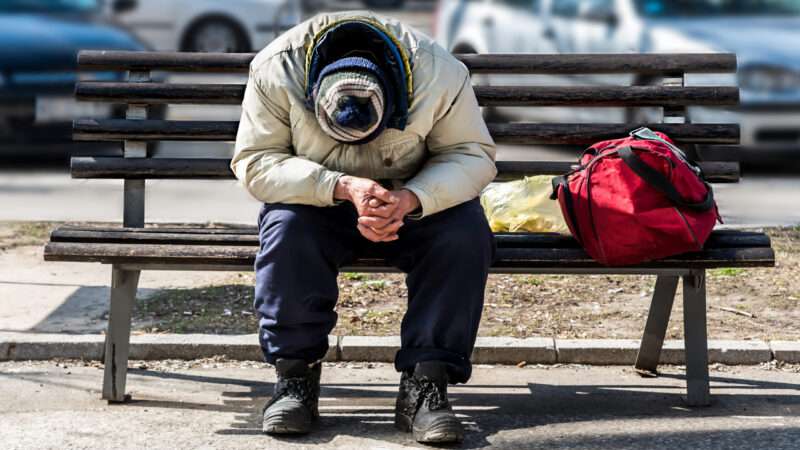
Cities that want to hide homelessness can criminalize sleeping in public. They can even jail repeat offenders. The Supreme Court upheld these measures in City of Grants Pass v. Johnson on June 28, 2024.
Grants Pass, Oregon, the city at the center of the decision, is not the only one testing how far it can go to address homelessness without violating the Constitution. Other jurisdictions have their own ways of keeping the housing problem out of sight.
The police cracked down on jaywalking near a downtown homeless shelter in Salt Lake City, Utah. Code enforcers targeted a business owner after he rescued campers from freezing weather in Akron, Ohio. And officers arrested a grandmother for serving hot meals at a public park in Bullhead City, Arizona.
Public planners will do almost anything to push away the problem once it exists. What they fail to consider is that they can address homelessness before it happens simply by getting out of the way and letting people find solutions to the crisis using private funds on private land.
Far too often, local officials do the opposite, using restrictive zoning laws. They talk about the need for affordable housing but do everything they can to block it.
Michael and Kellie Ballard are experiencing the obstruction in Santa Clara County, California. The couple owns the Savannah-Chanelle Vineyards, a historic winery nestled in an out-of-the-way spot on a 60-acre site.
Looking to help their vineyard manager, a long-time employee, the Ballards allowed him and his family to move a trailer onto the property in 2013 when housing costs threatened to push the family out of the area. Since then, the Ballards have provided a safe, free location for the family to live without harming anyone. The trailer is not even visible from the highway or neighboring properties.
Everything was fine for years until an anonymous complaint led to a county inspection. The zoning police, unconcerned about the human toll, gave the Ballards an ultimatum: Evict the family or pay daily fines.
The Ballards refused to kick the Martinez family out. Instead, they spent years and tens of thousands of dollars in permitting costs for a new, compliant home. All the while, their fines grew to a staggering $120,000.
That's a six-figure penalty for finding a private solution to a public problem. Without the Ballards, the Martinez family would have been forced to abandon good jobs and good schools to move somewhere they could afford.
Talk about self-sabotage.
Our public interest law firm, the Institute for Justice, is helping the Ballards fight back. But this is just one case among many. The zoning police are relentless.
Police showed up on Robert Calacal's doorstep the day after he allowed Chasidy Decker to move into her tiny house on wheels, which she parked behind a side yard fence on his property in Meridian, Idaho. The city told Decker the vehicle could stay where it was, but she could not live in it.
The zoning police will not even let people break ground on affordable housing in Calhoun County, Georgia. One charity, Tiny House Hand Up, submitted plans in 2021 for a community of southern-style cottages that would be 540 to 600 square feet each.
Calhoun County blocked the project for no other reason than size. Public planners enforce a minimum square footage to keep out the "riff raff," as supporters of the policy admitted during one hearing.
Elsewhere, the zoning police dictate whether homeowners may construct small add-ons or run quiet businesses in their garages or living rooms.
The results are often catastrophic. Zoning makes it more difficult to construct housing, earn income, or use property for any needs in between. And the problem has gotten worse over the past 100 years, as the Supreme Court and lower courts sign off on the top-down control.
These onerous restrictions make little sense, especially at a time when half of U.S. homeowners and renters are struggling with skyrocketing housing costs.
Only the most desperate of these individuals will end up on the streets—hopefully not looking for a place to sleep in Grants Pass. But everyone can benefit from zoning justice, the freedom to use property without unreasonable interference.
The post Zoning Police and NIMBYs Want To Keep People Homeless appeared first on Reason.com.







